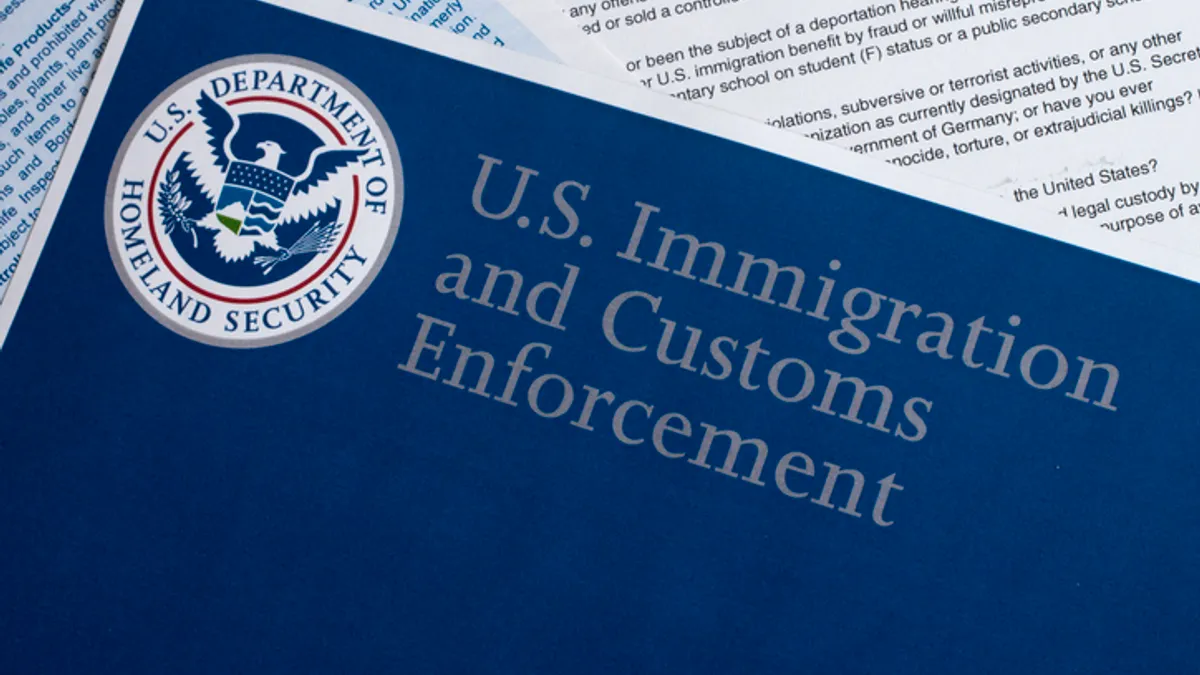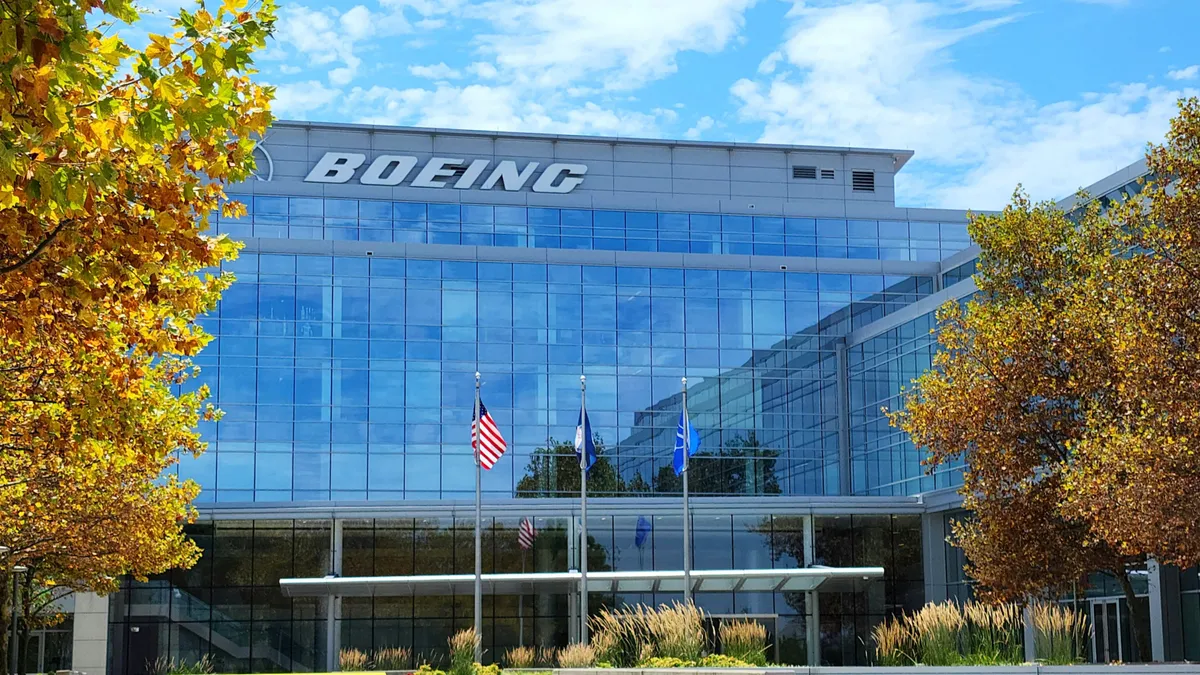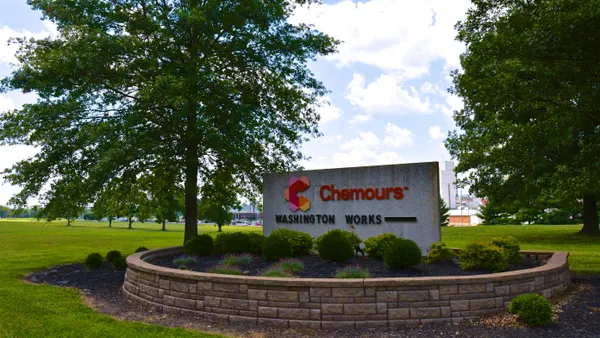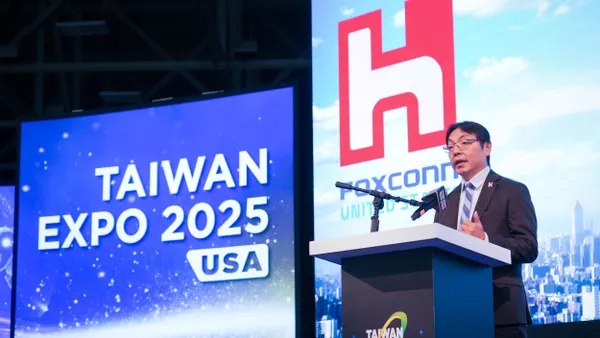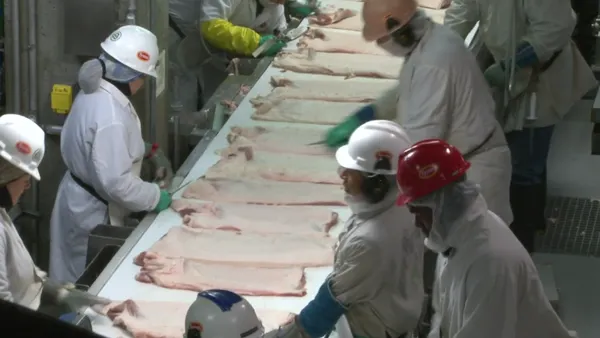Dive Brief:
- A second Donald Trump administration is expected to be aggressive in auditing companies’ compliance with I-9 employment eligibility requirements, for which criminal prosecution is possible for violations. But the first Trump administration wasn’t aggressive in using criminal law to prosecute companies that employed workers without proper documentation, a one-year compliance snapshot taken in 2019 shows.
- For the 12-month period between April 2018 and March 2019, only 11 people and no companies were criminally prosecuted in seven cases that were brought by Immigration and Customs Enforcement, a 2019 analysis by the Transactional Records Access Clearinghouse shows. TRAC is a Syracuse University research project that used a Freedom of Information request of the Department of Justice to get the data.
- ICE has had authority since 1986 to use a criminal statute to pursue individuals and companies that employ workers who aren’t in the U.S. legally, but it has rarely used that authority regardless of the administration in office. “Few employers have ever been prosecuted under these provisions,” the TRAC analysis says.
Dive Insight:
ICE uses its criminal authority almost entirely for prosecuting individuals for illegal entry into the country, not worksite violations, the TRAC data shows. During the same 12-month period in which ICE prosecuted 11 people and no companies for employing workers without proper documentation, the agency prosecuted 86,000 people for illegal entry, 35,000 people for illegal re-entry and 5,000 people for helping to bring people in illegally.
Since 1986, when Congress gave ICE its criminal prosecution authority, under 8 USC 1324a, no more than 25 people, and almost no companies, have been prosecuted in a single year.
“Not only are few employers prosecuted, fewer who are convicted receive sentences that amount to more than token punishment,” the TRAC report says. “Prison sentences are rare.”
Of the 11 individuals that were convicted in the 2018-19 snapshot, only three were sentenced to serve prison time, according to the data.
Criminal prosecutions for employing people illegally peaked in 2009, when Barack Obama was president. In that year, prosecutions reached a high of 25.
To the extent ICE does pursue an individual or a company for a criminal violation, it looks for willfulness.
“ICE is more likely to issue criminal penalties for a finding of knowingly hiring or continuing to employ unauthorized noncitizens,” say Robert Lee and Yane Park McKenzie in a blog post. Lee is a partner and McKenzie an associate at Troutman Pepper Locke. Their post isn’t in connection with the TRAC report.
Penalties can be as high as $2,789 for each I-9 with substantive violations and $27,894 for knowingly hiring or continuing to employ workers without authorization, according to a Department of Justice rule. If sentenced to prison, terms can be for up to six months, the Troutman attorneys say.
To avoid prosecution, whether civil or criminal, companies should conduct an audit of the I-9s they have on file to make sure they’re compliant, the attorneys say.
The most common problems with I-9s, which must be filled out by all employees, not just those who aren’t citizens, have to do with timing and completeness, the attorneys say. If they’re filled out late, or don’t include documents to verify what’s included on the forms or aren’t signed properly, companies can be fined. Failing to re-verify workers after their I-9 expires is another common violation.
In addition to conducting an I-9 audit, companies should provide training to HR staff on how to complete the forms and have a policy to ensure handling of the forms is consistent across the company, the attorneys say.
Companies in the construction, agriculture, manufacturing and hospitality industries can expect to see an uptick in ICE raids in the upcoming Trump administration, the attorneys say, because these industries tend to have a high proportion of positions that traditionally don’t require extensive training or education.
In making these raids, ICE often uses what are called Blackie’s warrants. These permit the agency to investigate a worksite without having to provide names or descriptions of the people being sought.
“With Trump’s policy on cracking down on unauthorized workers in the U.S., far-reaching raids of this nature are more likely to occur,” they said in their post.



